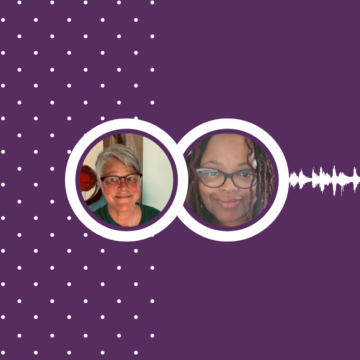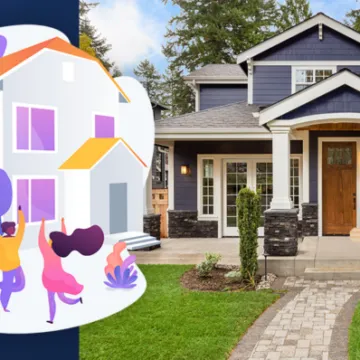The month of May marks Older American’s Month. It’s our nation’s celebration of the countless contributions that older adults make to our communities.
We couldn’t let this month go by without a focus on financial health and wellness of seniors, especially those who are managing the impact of recent financial hardships.
For seniors who need income in retirement, or for those facing unexpected changes in finances, a reverse mortgage might seem like the way to go.
Given these times, the full story of reverse mortgages deserves a closer look.
Five Things to Know About Reverse Mortgages
1. What’s a reverse mortgage and how does it work?
A good place to start is with a definition. A reverse mortgage is an option available to homeowners age 62 and older to borrow against their home’s equity without having to make monthly mortgage payments.
They can choose to take funds in a lump sum, line of credit or through structured monthly payments.
The repayment of the loan is required when the last surviving borrower vacates the home permanently.
Any remaining equity belongs to their heirs.
2. How is it different than a traditional mortgage?
Think of a reverse loan as moving in the opposite – or reverse — direction of a traditional or “forward” mortgage.
The traditional loan is a situation of falling debt and rising equity. The reverse mortgage is a situation of falling equity and rising debt.
The reversal comes into play when considering that as payments are made on a traditional loan, the amount owed reduced and the equity in the property increases over time.
With the reverse mortgage, as funds are withdrawn and as interest accrues on the loan, the balance grows and equity in the property becomes smaller.
3. Who should consider a reverse mortgage?
Keeping up with expected or unexpected expenses sometimes means thinking through options. This type of mortgage can help with expenses and home repairs when the borrower is living on a fixed income, helping homeowners to age in place.
A reverse mortgage can be a sensible option for seniors with sufficient income to cover basic expenses, including property taxes and insurance, who want to live comfortably in their home as they age in place.
4. Are there drawbacks?
While not really a drawback, there is a key issue to remember. Many borrowers are used to having their insurance and property taxes paid for in escrow as part of their mortgage payment. When they switch to a reverse mortgage, they are no longer making a mortgage payment, but are still responsible for paying property taxes and insurances. That’s something to remember. Because these large bills come due only a couple of times a year, it is important to set calendar reminders and plan ahead.
Not paying these property charges is defaulting on the mortgage and can lead to foreclosure.
As a HUD-approved housing counseling agency, GreenPath Financial Wellness often works with HECM clients facing this very situation. In many instances, by the time these individuals have reached out for help, they find they have fewer options available.
These mortgages also typically carry higher fees and costs associated with the loan compared to traditional mortgages.
5. Is now a good time to pursue a reverse mortgage?
In these challenging times, retirement savings have taken a beating. Seniors considering a reverse mortgage might want to consider the impact of any unexpected income changes.
With a reverse mortgage, upkeep, taxes and insurance are still needed for the home. If income changes, it’s important to know how to adjust to the situation and look for resources to help.
Consider all options first. While a reverse mortgage could be right for you, there may be other options.
GreenPath experts can help seniors think through alternatives like developing a solid budget or pursuing a debt management plan.
GreenPath Is Here For You
For seniors considering this option, don’t go it alone. Reach out for a no-cost financial assessment to ensure you can age in place exactly where you wish.
For those choosing to work with GreenPath’s reverse mortgage counselors, we’ll explain how reverse mortgages work, including payout options, homeowner costs, tax implications, and other benefits and drawbacks.
Considering a reverse mortgage? Reach out to one of our HUD-certified financial experts.
GreenPath Financial Service
Housing Counseling
Do you have questions about housing? Should you buy a home? Refinance your house? What if you can’t make your mortgage payments? Or your credit isn’t great? GreenPath can help.










